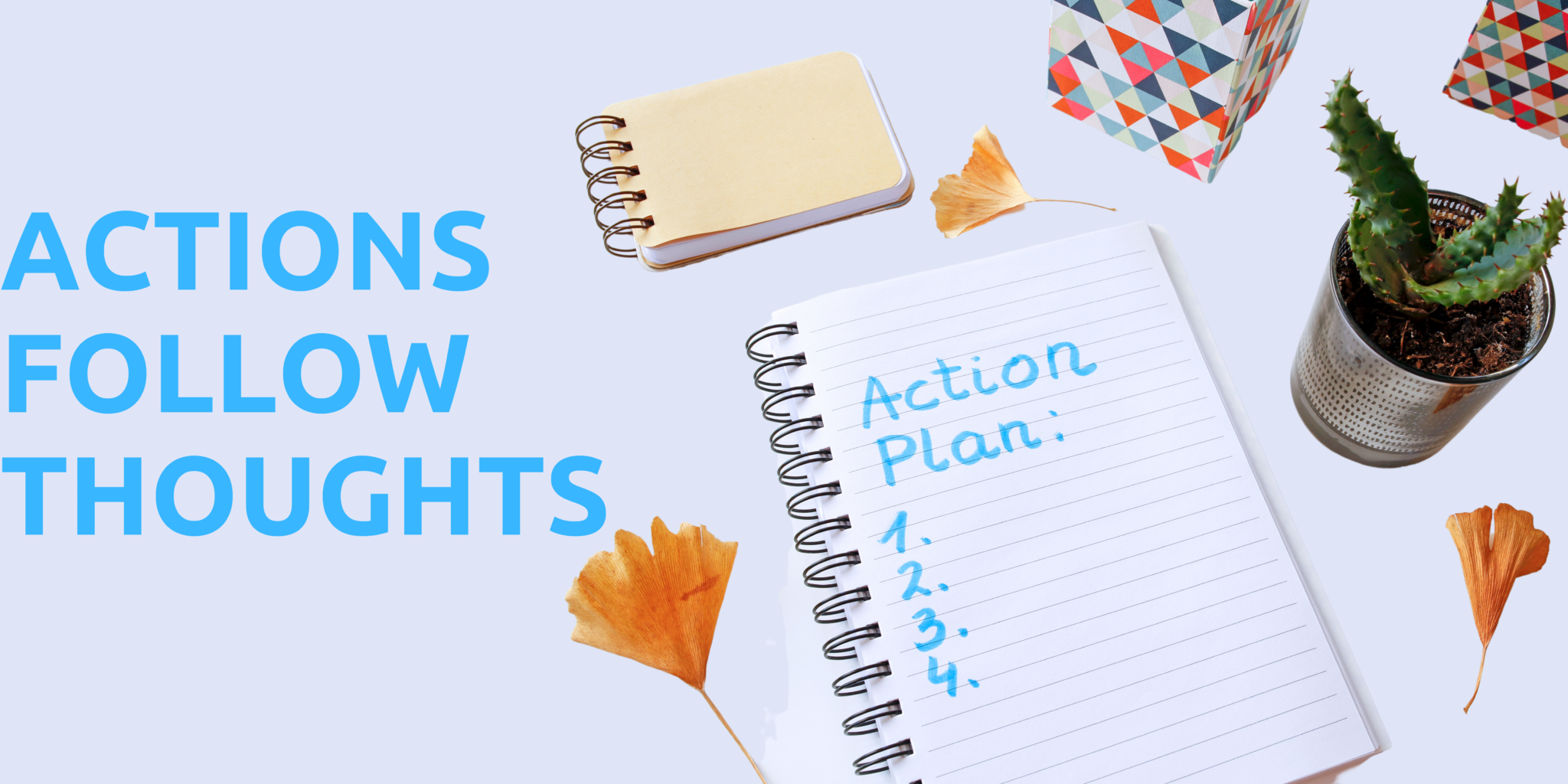Action follows thoughts
I was listening to the radio the other day. The host was interviewing a scientist who commented that many of the things that we take for granted were first imagined as devices in science fiction. Things like pocket-sized communication devices (i.e. smartphones,) pocket-sized computers (also smartphones) and live pictures from anywhere in the world displayed on screens in our homes (i.e. television.) Her point was that the one thing all of our cool stuff has in common was that it started in someone’s imagination.
Just give this a moment’s thought: everything ever devised by a person, from stone tools to houses to the International Space Station, began as an idea. Would it be an overstatement to say that—next to our capacity to love—our greatest quality as human beings is the ability to change the world with the things we manifest from our imaginations?
IT ALL STARTS WITH A THOUGHT
It seems ridiculously obvious to point out that we can’t do anything without thinking about it first. Getting out of bed in the morning, brushing teeth with the right amount of toothpaste, putting on this outfit or that… all these simple tasks require some level of thought before any action is taken. Usually, the thoughts that come into play in these simple situations are pretty automatic, unconscious, mindless. Mindless thought is fine when you’re selecting which shoe to tie first.
Not so much when you need to make a meaningful change in your life.
WHERE DO WE PUT OUR FOCUS?
Many people feel like they are sleep-walking through their lives. They may recognize that much of their day-to-day life is spent doing activities so habitually that they operate their lives on a sort of “automatic pilot.” As an eating and food therapist, I all-too-often see this sort of mindless approach taken toward eating and food. Last month we discussed the value of being prepared as a way to maximize a happy, functioning life—especially when it comes to one’s relationship with food. Backing up a bit, let’s spend a moment considering what comes before taking the steps to prepare for achieving something: clear intention.
MINDFUL INTENTION IS KEY FOR MANIFESTATION
When we wish to make powerful changes in our lives, clear intention is critical. Clear intention organizes our thinking. It sharpens our mindset into a tool necessary to achieve our goals. Clear intention can help lay the foundation for a desired outcome by adjusting our worldview to consistently make space for what it is we want to achieve. If we think of our minds as complex, sophisticated computers, clear intention reprograms our consciousness so our actions and choices become biased toward the results in our lives that we want.
“Whatever you can do, or dream you can, begin it. Boldness has genius, power and magic in it.”
— Johann Wolfgang von Goethe
Many of the changes we want or need in our lives require a lot of work. This is true for improving a relationship with a partner, starting a new business, creating a better living situation, or overhauling one’s relationship with food and eating. A big part of this work depends on making sure that the intention— and the thoughts surrounding that intention—are consistent. Ideally, we choose what our intentions are as well as choosing to honor certain thoughts. While we may have both positive and negative thoughts running around in our heads at any given moment, it is our choice as to which of our thoughts we listen to. (After all, we created our own thoughts; whether it seems like it or not, we are their masters!) The question is, what is the best way to actively choose our intentions and positive thoughts consistent with our intentions?
THE POWER OF THOUGHT INTO ACTION: ACTION STEPS
I recommend people regularly renew their intentions. Of course, sometimes we feel very enthusiastic about our intentions while at other times, maybe not so much. What is important is to stick to a couple helpful tools.
Using affirmations is a useful method to keep intention sharp. Repeating a positive statement to yourself—silently or out loud—a couple of times a day can have a tremendous, positive effect. For instance, if someone wants to have greater control over their intake of food they might use an affirmation : “I honor the wisdom of my body and pay attention to the cues that my body alerts me with. I eat when hungry, stop when satisfied, and I am grateful for my food” and say it at least once a day.
Making a vision board or poster of positive words and images to support your intention and conscious thoughts is also a valuable tool. Making a visual reminder as your computer’s screen saver can also be a good idea. One study suggested that people who look at a minute of different shots of smiling faces on their computer a few times a day improved their general attitude. What we allow into our consciousness does affect it, for better or worse!
One important final note: In either affirmations of vision boards, it is critical that the sentiments are phrased in a way that focuses on the positive, not the negative. Also, keep things in the present, not in the future. For instance, it is more constructive for the mind to experience the phrase “I speak calmly and effectively to my kids” than it is to use a phrase like “I won’t yell at my kids.” Likewise, “I am eating foods that nourish my body and soul” is recommended over “I won’t eat junk food anymore.”
As in most cases in life, keeping things positive is always the best approach.





